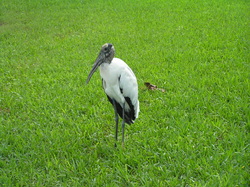 This week, I finished the third draft of my novel, the one I hoped to pass on to readers. But the pile of notes I jotted during that revision demand a fourth attempt. So I've outlined by chapter the additions and changes and next week, I'll attack Draft #4. Writing a book can seem like an endless project. When I've described the process to non-writer friends, they gawk at me and say things like, "Why would anyone go to all that trouble?" Which, believe me, I've asked myself a time or two. Even if your loved ones are supportive, they probably don't understand the passion (some would say madness) that leads us to toil for eons on a story. So, it's best to share writerly moments with people who can relate. The writers in my circle are always willing to lift their heads from their work to encourage and advise. And keep me grounded. Even if I can't see the end of this process, I trust their promise that it does have an end. Books on craft are also a comfort and fuel while I revise. They stimulate the brain and, I hope, affect the revision in a positive way. Recently, I read Donald Maass' The Fire in Fiction. Maass is the president of Donald Maass Literary Agency and the author of Writing the Breakout Novel. In the last chapter of The Fire in Fiction, he addresses what he feels is the lack in most people's writing. Maass writes: Where so many manuscripts go wrong is that, if they do not outright imitate, they at least do not go far enough in mining the author's experience for what is distinctive and personal. That was an eye-opening bit of wisdom. I've joined in discussions about bad writing practices in successful, sometimes award-winning books. We struggle to erase excess adverbs and adjectives, passive voice, telling, etc. from our manuscripts, then pick up the latest publishing darling and gasp at the undisciplined writing. It can be downright discouraging. Some might even see it as an excuse to ignore the experts' list of no-nos. Indeed, after reading truckloads of submissions in his career, Maass suggests the key to a good story is not following all the literary rules, but being as honestly unique as you can. Filter your story through the treasure of memories in your head. Make it a story only you can tell because only you know how you would experience it. I believe that's what agents and editors mean when they say they're looking for fresh voices. And as a reader, I agree with him. If I'm swept up in a story, I don't notice how it's written. I don't think Maass is saying we should stop improving our craft. The creative people I know never tire of learning new ways to improve their work. Writing a novel, for most of us, is a slow process. It requires patience and perseverance, qualities I hope to spend the rest of my life practicing. And next week as I revise, I'm reminded by Maass to leave my individual stamp on the story. Photo credit: David Banghart 2013
1 Comment
Mo Ungar
8/25/2013 09:58:00 am
Hi, Susan. I often refer to Donald Maass' book, 'Writing The Breakout Novel'. I did a final draft of my latest story and then, as his chapter on writing a synopsis or outline suggested might happen, I'd missed things I wanted to include once the synopsis was done. I added these to my work to improve the whole. Next up for me, a query letter. P.S. I don't think a draft is final until the work is in print--and with eBooks, even that is iffy!
Reply
Your comment will be posted after it is approved.
Leave a Reply. |
AuthorI write middle grade and young adult books with a magical twist, and I'm represented by the fabulous Leslie Zampetti at Open Book Literary. Writer Websites
Augusta Scattergood Maggie Stiefvater Rob Sanders Fred Koehler JC Kato Sarah Aronson Kelly Barnhill Linda Urban Kate DiCamillo Jacqueline Woodson Helpful Links SCBWI Agent Query Lorin Oberweger - Freelance Editor Search BlogArchives
May 2020
Categories
All
|


 RSS Feed
RSS Feed
